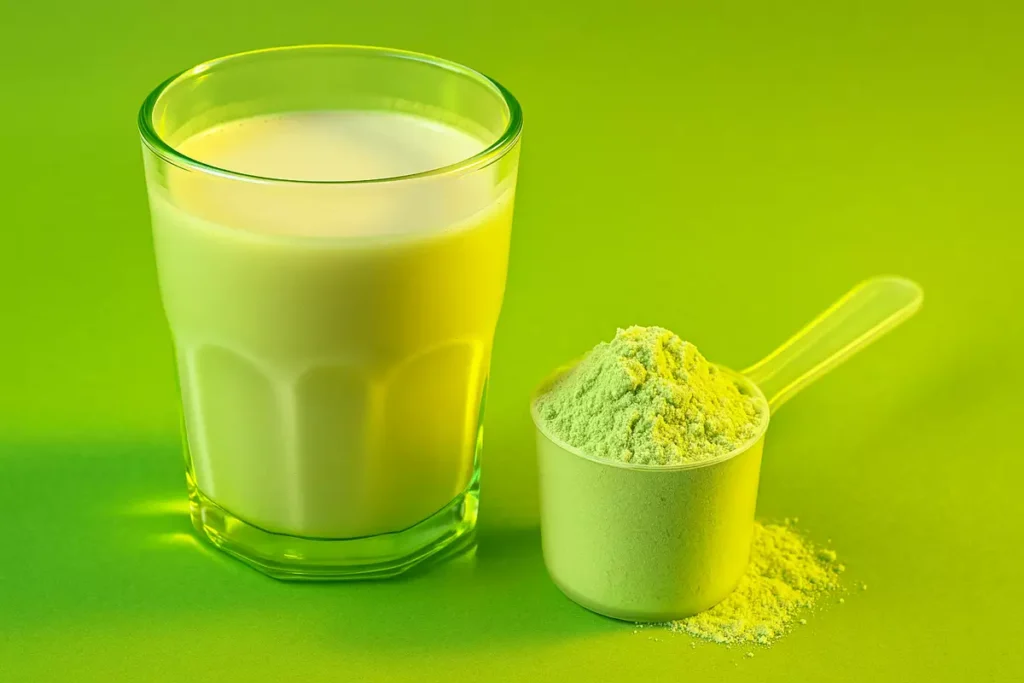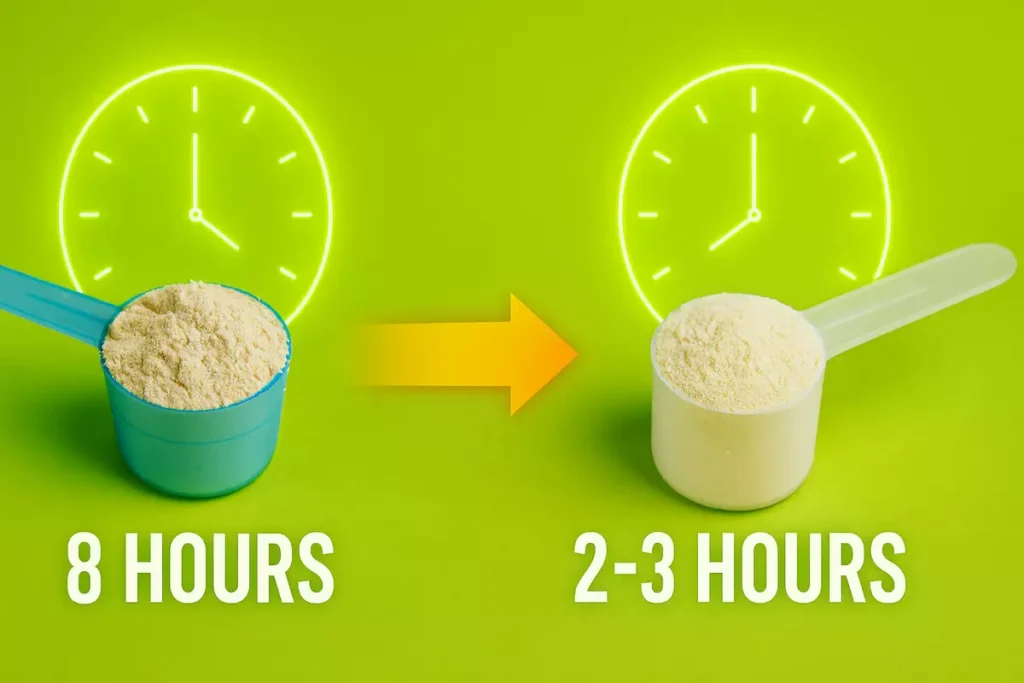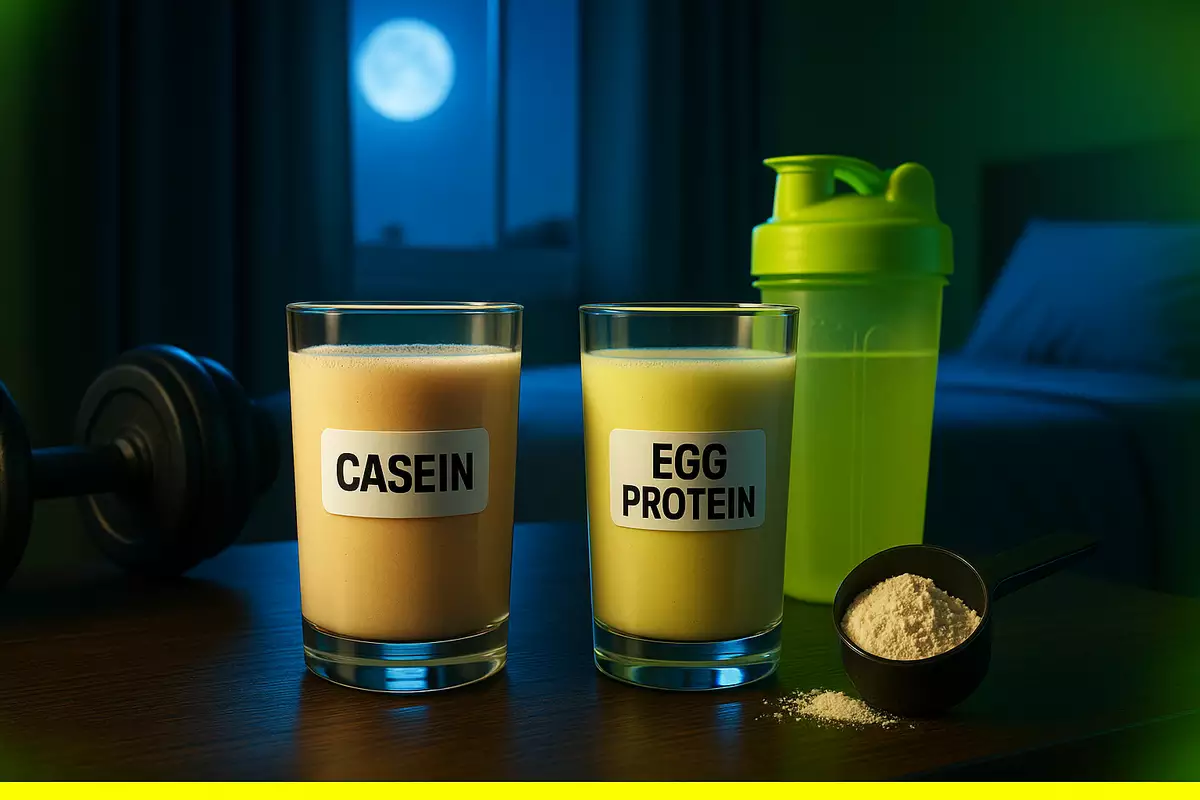When it comes to building muscle overnight, the protein you choose before bed matters.
Casein protein and egg protein are both high-quality options, but they work differently inside your body.
In this guide, I’ll share my personal experience as a fitness trainer and explain which one keeps you anabolic while you sleep, boosts recovery, and prevents nighttime hunger.
Table of contents
- Which Protein Is Better for Nighttime Recovery
- What Is Casein Protein?
- What Is Egg Protein?
- Digestion Speed and Amino Acid Release
- Muscle Recovery and Overnight Anabolism
- Satiety and Fat Loss Benefits
- Best Timing and Dosage for Each
- When to Choose Casein vs Egg Protein
- Final Verdict – Optimal Nighttime Choice
Which Protein Is Better for Nighttime Recovery
If you want to maximize overnight muscle recovery and prevent morning hunger, casein protein usually outperforms egg protein.
Casein digests much slower, releasing amino acids gradually for up to 7–8 hours. This makes it ideal for nighttime muscle preservation and steady recovery.
From my own bodybuilding experience, casein always helped me wake up feeling stronger and less hungry. While egg protein is an excellent, high-quality option, it digests faster and doesn’t provide the same long-lasting anabolic support during sleep.
You can read more about the best timing for casein protein to fully understand why it’s favored at night.
What Is Casein Protein?

Casein is a milk-derived protein known for its slow digestion rate. Unlike whey, which floods your muscles quickly, casein forms a gel-like substance in your stomach.
This allows your body to steadily absorb amino acids, keeping you in a positive nitrogen balance throughout the night.
When I first introduced casein into my nightly routine, I noticed fewer muscle aches and improved recovery, especially during my cutting phases.
Athletes can also benefit from casein’s endurance support — learn more in the guide on casein for endurance athletes.
What Is Egg Protein?
Egg protein comes mainly from egg whites and is lactose-free, making it a good option for people who can’t tolerate dairy.
It’s rich in essential amino acids and has a high biological value, meaning your body uses it efficiently for muscle repair.
I remember one of my clients, Javier from Spain, who was sensitive to dairy. We switched his bedtime shake to egg protein, and while he didn’t get the same fullness as casein users, his recovery still improved significantly.
Digestion Speed and Amino Acid Release

Here’s where the biggest difference lies:
- Casein: Digests slowly, providing a steady release of amino acids for up to 8 hours.
- Egg protein: Digests moderately fast, usually peaking within 2–3 hours.
During one bulking phase, I experimented with egg protein before bed. I woke up feeling slightly depleted, almost like I had skipped a meal.
Switching back to casein eliminated that issue completely. If you struggle with nighttime hunger, you’ll find this nighttime hunger guide helpful.
Muscle Recovery and Overnight Anabolism
Your body repairs muscle tissue while you sleep. Without a steady amino acid supply, you risk muscle breakdown.
Casein’s slow-release nature makes it perfect for protecting your hard-earned muscle mass overnight.
Many of my clients, like Marco from Italy and Lena from Germany, reported better morning energy and less soreness when we added casein shakes before bed.
For a deeper dive into recovery benefits, check out casein protein before bed.
Satiety and Fat Loss Benefits
If you’re cutting calories, nighttime cravings can be brutal.
Casein helps by keeping you full longer, preventing late-night snacking.
Personally, during my fat loss phases, casein was a lifesaver. Egg protein worked well too but didn’t provide the same fullness, making it harder to resist cravings.
Learn more about how micellar casein compares when it comes to satiety and digestion.
Best Timing and Dosage for Each

- Casein: 25–35g, taken 30–45 minutes before bed. Mix with water or milk for a creamy shake.
- Egg protein: 25–30g, ideally blended with almond milk and a spoon of peanut butter to slow digestion if using it at night.
This small tweak can make egg protein mimic some of casein’s long-lasting effects.
Some lifters also stack it with creatine for enhanced recovery, as explained in the casein and creatine stack guide.
When to Choose Casein vs Egg Protein
- Choose Casein: If you tolerate dairy, want maximum overnight recovery, and need better satiety during fat loss.
- Choose Egg Protein: If you’re lactose intolerant or want a lighter nighttime option.
I even tried combining both proteins (20g casein + 10g egg protein) during a heavy bulking phase.
This gave me smoother digestion and slightly better muscle fullness in the morning compared to using egg protein alone.
Another dairy-based option is cottage cheese before bed, which provides similar benefits to casein.
Final Verdict – Optimal Nighttime Choice
For most lifters, casein is the superior nighttime protein because of its sustained amino acid release and muscle-preserving benefits.
However, egg protein remains a solid alternative if you can’t have dairy.
Remember, what matters most is consistency and personal comfort.
Experiment with both, track how you feel in the morning, and choose the option that fits your recovery needs best.



Leave a Reply